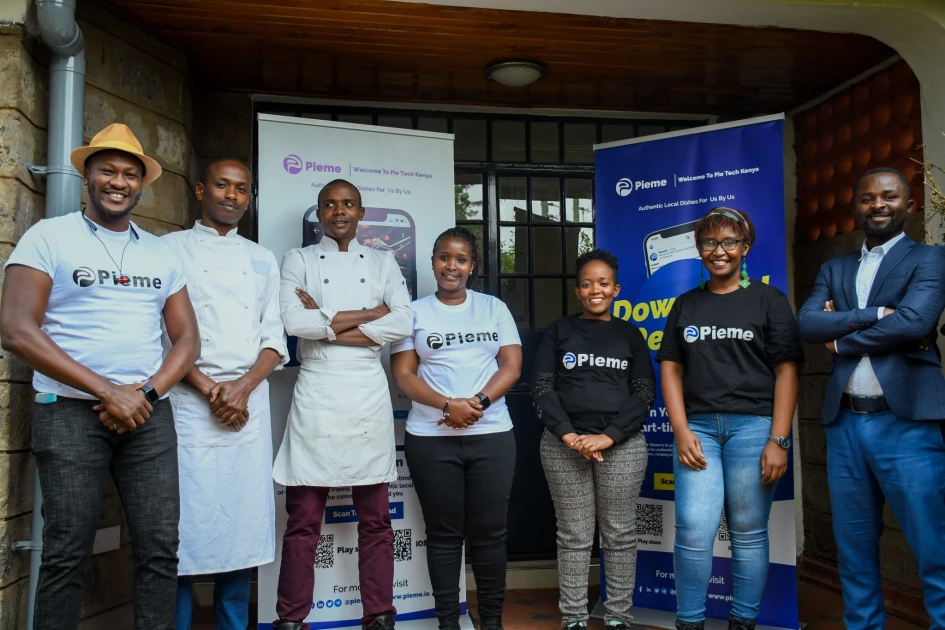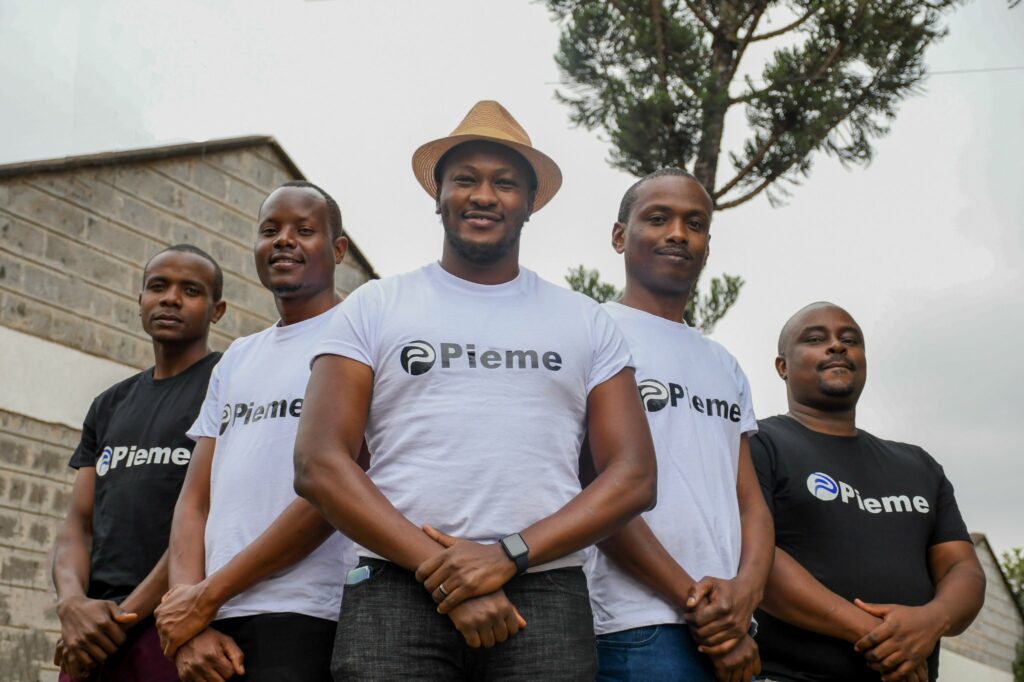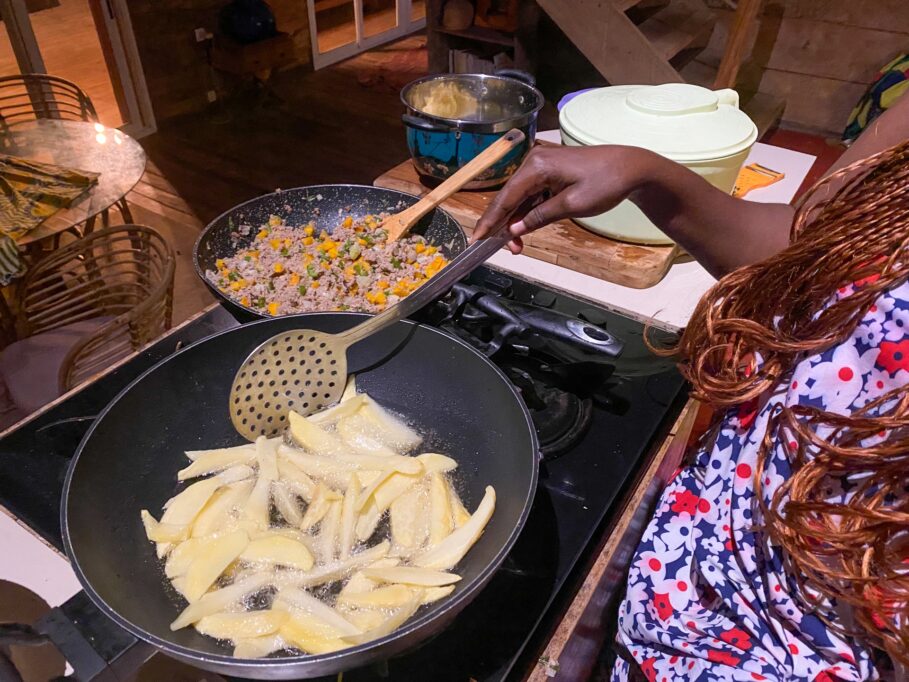The global food and restaurant business is evolving, and investors are pumping billions of dollars into new models called cloud kitchens. A few months ago, a yarn spinner sold the idea for a Kenyan version to investors but wilted in less than a year. However, PieMe, is working put further disruption in Africa’s restaurant space. This time, it’s led by a group of enterprising Ugandan entrepreneurs.
As usual, let’s catch up on some important points:
- The global restaurant business was worth $2.6 trillion in 2022 and is expected to grow to $2.9 trillion in 2022.
- At $352 billion, the food delivery segment is a fast-growing
- Players use three distinct models: Restaurant-to-consumer, platform (app) to consumer, and cloud kitchens. T
- Platform companies are expected to overtake the restaurants that currently dominate the US market.
- In Kenya, restaurants dominate the food delivery market and will keep dominating by 2025.
- The cloud kitchen business model is still growing, and it’s yet untested in the African market.
- Uganda’s PieME is taking an unexpected approach to the restaurant business by helping regularly people turn their home kitchens into cloud kitchens. For food lovers, you get to browse through a social network for different dishes and make orders at restaurants close to your locality.
Before we dive deeper, it would make some sense to understand the motivation behind the creation of PieME.
The inspiration for PieMe

In 2018, two Ugandan friends, Joshua Kainja and John Muhindo, travelled to Kenya. Before the trip, they’d heard tales of delicious Kenyan dishes like the Ugali (Cornmeal), Sukuma Wiki (Collard greens), and Nyama Choma (roasted meat) and wanted to eat from the locals.
The Makarere alumni friends felt what most travellers experienced when moving to a new country; Ignorance of the right places to stay, and the right places to get local food.
“When you’re new in a place, you’d meet more of high-end restaurants and apartments, so that gave us a reason to create PieME, so we can source for accommodation from the locals, and get food from them,” says Kainja, CEO of PieMe.
The friends went back home and carefully crafted a development plan for PieMe. They shortly launched in Kampala, Uganda, as a social network for people travelling across Nairobi, Dodoma, and Uganda, to find lodgings and locally made food, and to help travellers better understand the country’s culture.
However, making this platform a reality was tough. Kainja explains that he had difficulties finding the right talent, Once the team launched the platform, there was a enormous task of getting the right people to see the platform and use it.
At this point, it would make sense to understand PieMe’s dynamics.
How does PieMe work?

Piem has four main offerings, and plans to add a fifth one:
- A social food platform i.e Facebook but for food lovers. Available of the Google and Apple store
- PieMe enables anyone to turn their home kitchen into a partime restaurant. These cooks are called hosts
- Local recipes of different cultures if you plan to prepare meals yourself
- A platform to connect with your indigenous communities in a foreign country
- Plans to list homes that have its food offerings in the future.
PieMe’s focus starts with food lovers who want to share stuff about the meals they cook at home with the world. It’s Android and IOS apps let you share photos and videos of meals. The PieMe team then markets to customers.
“Let’s say you’re in Lagos, which has different communities, we would have hosts (Cooks) in these areas, and people are able to order homemade food from them,” says Robert Okello, PieMe’s Head of Growth, who oversees Middle East and African expansion.
The company works with culinary schools and colleges to have their current students start their restaurants on PieMe, giving them a platform to showcase their skills early on.
“PieMe is a social network for food. A food movement, and a revolution,” Okello declares. “The hosts can create content, host events, and invite foreigners. If you’re a user, you’re able to scroll through food content on the platform like you would on Facebook.
When a user decides to order, PieMe works with the hosts to deliver the food items to customers. Okello reveals that the company partners with two electric mobility companies, eBee Electric, and ARC, to promote sustainability goals.
Those who like experimenting are not left out, as PieMe let’s adventurous cooks access the recipes of cuisines and delicacies from different countries.
Perhaps, one of its most important offerings is helping sojourners connect with communities from their homeland. If you ever get homesick, or if you’re one of those weirdos who still look for their local foods in foreign countries, then PieMe has got you covered.
“In Kenya, there are so many communities. We have a Nigerian community. We have an Indian community. If when you were coming to Kenya, and you wanted to meet the Nigerian community. How would you go about it on primary?”
In the next few quarters, PieMe also plans to operate an Airbnb model, where customers can also book local lodgings, and order meals from the host or other hosts that are close by.
How do you become a host?

Okello explains that PieMe undertakes a thorough inspection process to make sure that the prospective host’s kitchen meets up to standards and that they have a food handler certificate. The team considers cleanliness and the hygiene levels of the environment.
Once approved, the hosts can then showcase their meals and recipes, and then PieMe helps to market the content to prospective users.
“We’re basically helping people turn their home kitchens into part-time restaurants. If you want to make five meals and sell them, you are able to do that. If you want to do 10. if you don’t want to host that day, you just, don’t post anything that day.”
The business model

PieMe revealed some key business metrics, and they can be summed up thus:
- Commission on orders
- Brand advertising
- 3000 hosts and 13,000 customers
- $10,000 revenue.
PieMe CEO, Kainja revealed that getting the funds to make the platform as big as possible has not been easy. Both Kainja and Okello are adamant that the company’s business model is sustainable and would be a game changer in the restaurant industry.
“We have three major ways we make money. First, we take a 10% commission on all orders that go through PieMe. Secondly. If you post a meal, we take a 10% cut on that. Finally, we’re building a huge community of food lovers, and our target is to have a million downloads just within Kenya and Uganda alone,” Okello explains.
The platform already has over 10k downloads on the Google Play store alone, and it plans to monetise the audience once it reaches a million downloads.
“We plan to get corporates looking to push products to the market, and we can advertise through our hosts who already post food content.”
Per Okello, the business has much lower overall costs, so meals are cheaper. $5 meals would cost 3 dollars. “Of course, home-cooked meals are much better than mass-produced meals when it comes to quality.”
“The global restaurant industry is valued at $1.2 trillion, and we only plan to take 10% of that market in the next few years.”
In both countries, PieMe has over 3000 hosts, and it plans to hit the 10,000 mark by the end of the year. It has also been able to attract 13,000 users (9000 in Uganda, and 4000 in Kenya).
Though both founders are Ugandans, Kenya’s high Internet penetration rates and digital literacy is attracting them to Kenya. In just three months in Kenya, the adoption rate has been much faster.
In the next year, it plans to expand to countries like Nigeria and Egypt which have very vibrant food cultures like Kenya.
The company currently averages $10,000 in revenue, and the target is to grow this number to $100,000 in the next few quarters. PieMe’s case is helped by the fact that it mainly has indirect competitors like Jumia Food, Glovo, or Uber Eats, which operate distinct models.
Despite what they’ve touted to be a solid business model, closing VC funding rounds have been tough, but PieMe was able to raise funds from its Pie Token which Okello reveals has owners from all over Africa, especially Nigeria.










